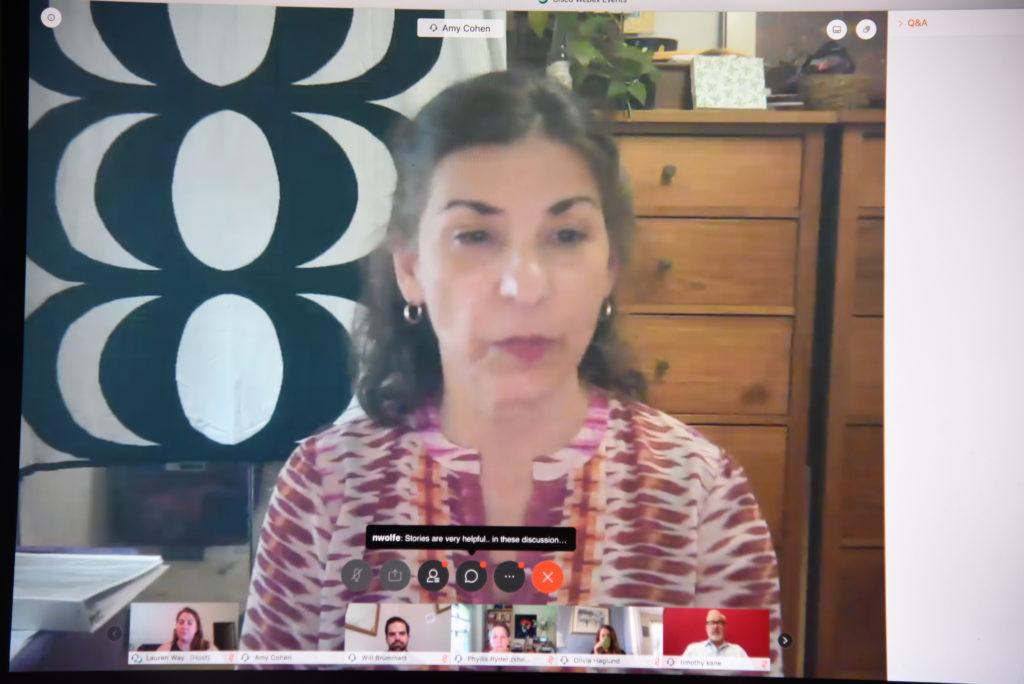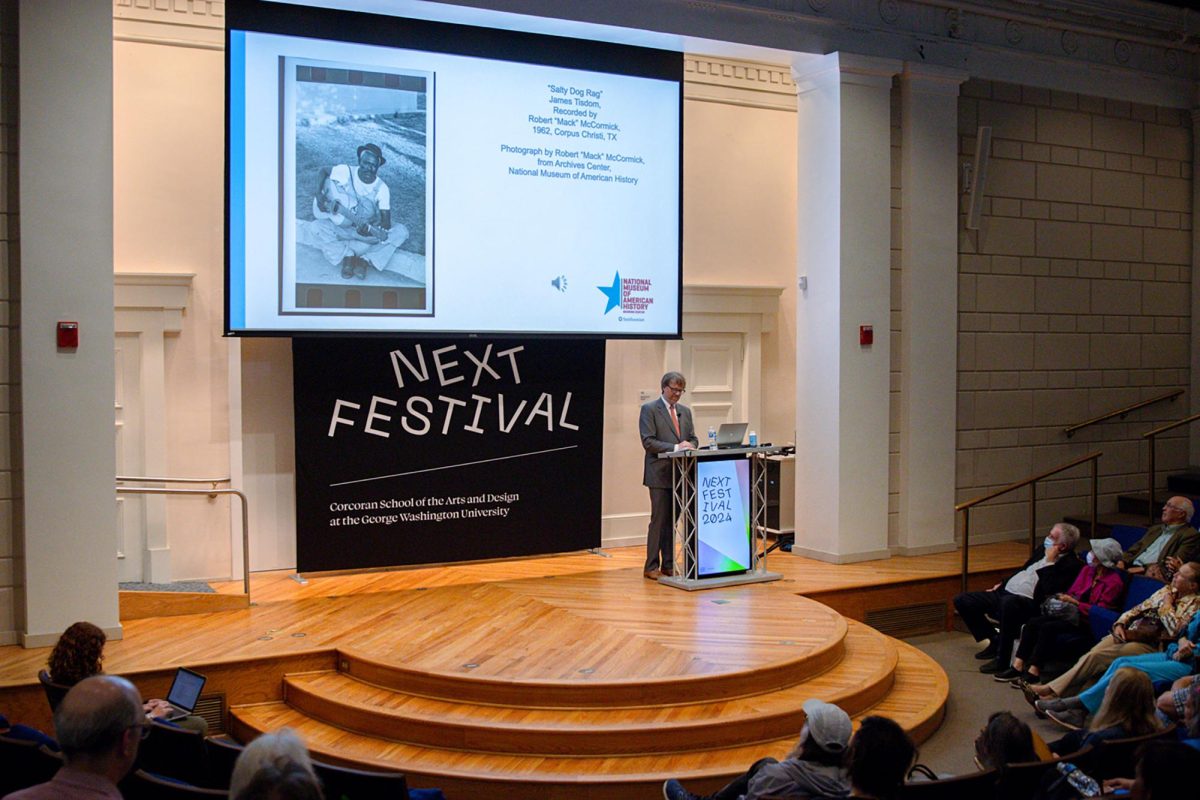A panel of students, faculty and staff spoke about the role of White people in fighting against racial injustice and anti-Black violence at an online discussion Friday.
The discussion was part of the month-long #GWInSolidarity programming series hosted by the Office for Diversity, Equity and Community Engagement. Panelists recounted their own experiences combatting internalized racial biases and shared the steps they have taken, from volunteering with Black community organizations to urging professors to diversify course syllabi, to practicing anti-racism daily.
Amy Cohen, a panelist and the executive director of the Nashman Center for Civic Engagement and Public Service, said the discussion was just the beginning of a longer journey toward integrating anti-racist practices into the everyday lives of GW community members. She said officials will host another discussion during the fall semester to hold White students, faculty and staff accountable to continue engaging in anti-racism work.
“Today, we’re going to begin the GW conversation about what White people can do or do more of to become anti-racist and to address anti-Blackness in the world around us personally, professionally, in policy and in politics,” Cohen said. “We, like many of you, search for the ways that we can address implicit bias, institutional and structural racism and how we can be helpful to those around us in developing anti-racist practices and policies in our lives.”
Will Brummet, the program manager for co-curricular service in the Nashman Center, said diversity and inclusion officials decided to create a space for White students, faculty and staff to talk about anti-racism to avoid imposing an emotional burden on Black people.
“It’s the recognition that there are some identity-specific questions, growing pain and problems that could not, and in some cases should not, be expressed in multicultural spaces to prevent further harm or emotional burden,” he said.
He said the onus is on White people to dismantle systems of racist oppression despite White people’s impulse to turn to members of the Black community to educate and challenge others on racial issues.
“The realities of dealing with our Whiteness, fighting White supremacy in our own lives and dismantling racism in our communities, is something White people have to take as our responsibility as well,” he said.
Junior Olivia Haglund encouraged her peers to follow and support GW and D.C.-based racial justice organizations like the GW Black Student Union, call out acts of racism within student organizations at GW and support Black-owned businesses to begin practicing anti-racism.
“It’s necessary to call out racism obviously when you see it, but it should not be the end of the conversation,” she said. “It should only be the beginning and allow for a progressive conversation to continue, so we’re not just having these discussions when people are murdered at the hands of police but every day and looking at not only Black trauma but also Black joy.”
Christy Anthony, the director of the Office of Student Rights and Responsibilities, said she was initially “defensive” after student leaders challenged her on how the SRR office balances free speech against discriminatory misconduct. But she said she is now working to advance anti-racism within her office and GW’s sanction policies.
“I have not found the right balance in my work between protecting the free exchange of ideas and building anti-racist systems,” Anthony said. “But I can now name the racism in that structure. That is not the end, but it is an important beginning.”
Phyllis Ryder, an associate professor of writing, urged fellow White faculty members not to allow gaps in their knowledge of the racism embedded in educational institutions to negatively affect Black students.
“Accept that we as White people have gaps in our knowledge, and make sure we are not penalizing others for our own limitations,” she said.








